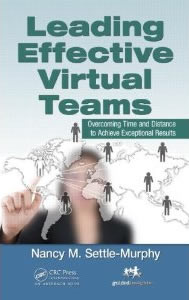Be honest. Would you speak up in any of these situations?
- Your manager tells you that the 45-year-old employee you recommended for the next leadership development cohort isn’t the right fit because they’re looking for “a different demographic.”
- The only person of color on your team is frequently praised as being “really articulate,” a phrase rarely, if ever, said about your other colleagues.
- You’re in a meeting with a colleague who throws her hat into the ring for a demanding new project, only to be asked by the project leader whether she really feels she can take this on as a parent of young children.
- Your colleague insists that when she sees you, the only person of color on your team, she “doesn’t see color.”
- Your client directs all questions to your male employee, despite the fact you introduced his female counterpart as the subject matter expert.
All of these are real-life statements I’ve heard in my recent Discovering Unconscious Bias workshops, and all are examples of microaggressions. (The term microaggression refers to “a statement, action, or incident regarded as an instance of indirect, subtle, or unintentional discrimination against members of a marginalized group such as a racial or ethnic minority,” according to Dr. Jennifer Eberhardt, author of the book Biased.) “Subtle acts of exclusion” is another way to characterize statements like these, which can make people on the receiving end feel excluded, lesser than, alienated or somehow “otherized.” Those who witness microaggressions are bystanders who become allies when they speak up.
So what would you do? Would you let it go, maybe because you didn’t want to create unwanted tension, or because you thought the initiator didn’t mean any real harm? Would you take the initiator aside later to explain the impact their statement had, however unintended, so they might learn for next time? Might you say nothing at the time, but take the subject aside privately to ask them if they’re okay and to express support? Or would you speak up right away to make this a teachable moment, despite any potential risks?
Most people I ask say they’d probably let comments like these go, especially if they were the subject. Some explain that statements like these are so commonplace that they’ve learned to ignore them as best as they can, while others are concerned about being seen as a troublemaker, overly sensitive or angry. When the initiator has power or influence over their jobs, the bystander and subject may understandably be more reluctant to speak up. More people said they’d speak up if they were a bystander versus the subject.
But, when we choose to remain a bystander by not speaking up, either in the moment or privately later on, we lose an opportunity to help people understand the real harm their statements have caused. Plus, others may assume we are tacitly condoning or agreeing with the statements, which may help to propagate the behavior.
Whether you’re a bystander, an ally, the subject or the initiator, here are some tips for addressing a microaggression in a way that can make it a teachable moment for the initiator and create a sense of psychological safety for the subject and anyone who might have been affected.
- First, decide whether to speak up. If the statement in question was made by a person in a position of power or if it’s a client or business partner, it can be more awkward and possibly risky to say something, especially in the moment. If you’re a bystander, try to assess whether the subject will welcome your intervention. The subject could be grateful that you called out a microaggression, or could feel a loss of agency if you speak for them. Some microaggressions are so blatant that you may decide to speak up right away. Your main priority is to create a sense of psychological safety for the subject.
- Then, decide when to speak up. If you’re in a large group, it might be more risky to call out a microaggression in the moment. The initiator is likely to feel more defensive and possibly humiliated, neither of which creates an environment for a learning experience, and the subject might feel even more uncomfortable than they already do. However, if the statement or question is so offensive, you probably need to summon up the courage to say something then and there. (Team leaders have a special responsibility for speaking up in the moment, as their team members may assume they’re condoning the behavior or have a similar bias if they wait to address it privately with the initiator later on.)
- If you choose to address a microaggression in the moment, first find a way to stop the action. Try something like: “Whoa!” Or “Wait a second.” Or “Hang on a moment.” Then pause silently for a few seconds to hold the initiator’s attention.
- Show that you assume good intentions by giving the initiator a chance to restate what they just said. You might say something like: “Can you help me understand what you meant when you said…. Can you phrase it another way?” Or, “Your comment reflected some underlying assumptions that would be helpful to understand. Can we stop a moment to unpack them?” To help defuse tension, comment on what the person said, rather than on the person. So instead of saying something like, “You really sounded racist when you said…..” try something like, “Your statement might have been hurtful to others. I think it’s important to talk about why.”
- If you are the subject of the microaggression and choose to speak up in the moment, you can say something as simple as “Ouch!” or “Could we hit pause for a second?” After allowing a moment of silence, explain the impact the statement had on you by saying something like: “When I heard you say ____, I felt that you might be implying or assuming ______, which made me feel ____. I’m sure this wasn’t your intention. Can you help me understand what you meant?” If you wait until later to address the initiator, try to use their exact words to the degree possible for the greatest impact.
- If you’re the one receiving feedback, thank the person for having the courage to speak up. Calling someone out on a perceived slight can feel risky, especially it there is a power differential. Resist the temptation to explain what you meant to say, or what you intended them to think or feel. Focus instead on understanding the impact your words had, and why. Be curious. Ask probing questions to better understand how and why your words were heard in a certain way. Reflect on how you can use this as an opportunity to do better. Enlist others to give you feedback, either in the moment or later on, and offer to do the same for them.
- Hold yourself, and each other, accountable. Ask others to be on the lookout for any microaggressions from you or others, and to you give you candid feedback, preferably in the moment, if appropriate. Volunteer to do the same for others. If you’re a leader, work to create an environment where people feel comfortable identifying and addressing microaggressions in a way that feels safe and productive for everyone. Model the desired behavior by refusing to give microaggressions a pass.
When we use microaggressions, we’re sending messages, however unintentional, that serve to make people feel excluded, different, “not normal,” invisible or inferior. You may think that complimenting someone on their English is a “nice comment,” but to someone struggling to assimilate into a new culture, you’re putting what may be unwanted focus on the fact that they “aren’t from around here,” effectively reminding them that they are “one of the others.” When we choose to become allies instead of bystanders, we’re helping to make it a teachable moment where all of us has an opportunity to do better, and to be better.
Links
Discovering Unconscious Bias Workshops by Guided Insights – downloadable information sheet
Unconscious Bias – latest resource directory by Guided Insights
Books:
Subtle Acts of Exclusion by Tiffany Jana and Michael Baran
Biased : Uncovering the hidden prejudice that shapes what we see, think, and do by Jennifer L. Eberhardt, PhD.
The Person You Mean to Be by Dolly Chugh
Articles:
When and How to Respond to Microaggressions (hbr.org) – July 2020
Speak Up: Responding to Everyday Bigotry | Southern Poverty Law Center (splcenter.org)
You’ve Built a Racially Diverse Team. But Have You Built an Inclusive Culture? (hbr.org)
Common Racist Attitudes and Behaviors That Indicate a Detour Or Wrong Turn Into White Guilt, Denial Or Defensiveness – downloadable article




